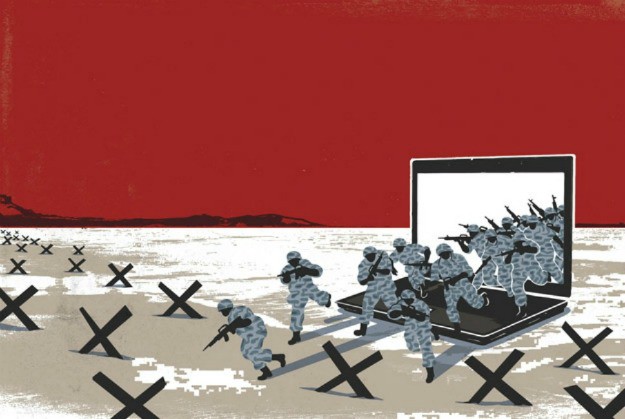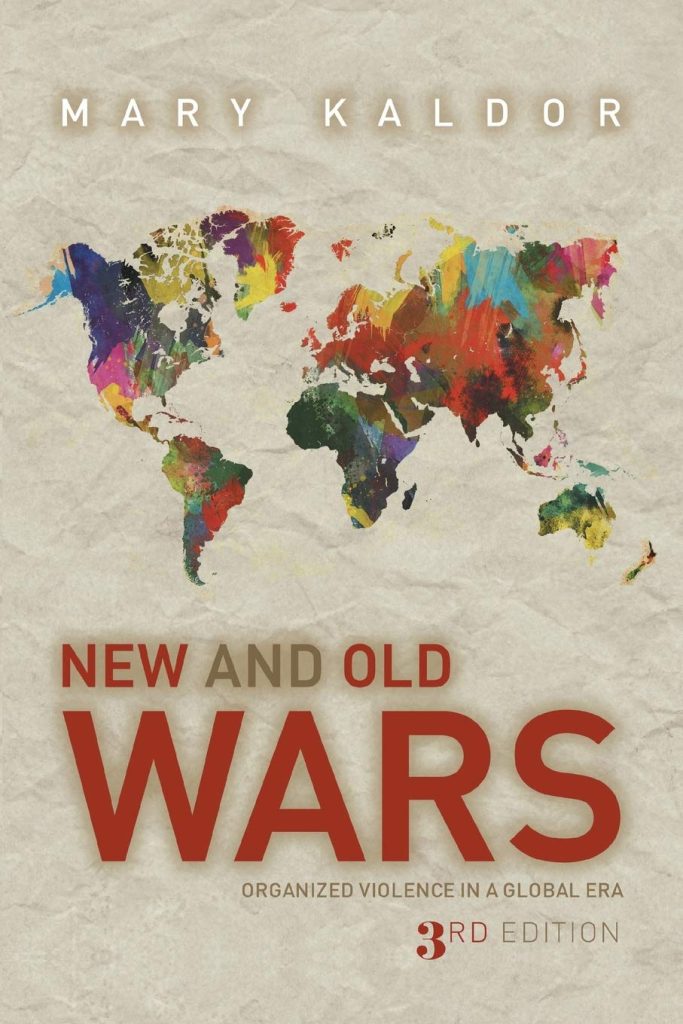How “New” are “New Wars”?

In the last years, since 1997, when Mary Kaldor wrote New Wars (1997), a new topic and field of interest arose in the International Security Studies. Indeed, after she wrote three books talking and explaining a new way of conducting wars (New Wars, 1997; The End of Military Fordism, 1998; and New and Old Wars, 1999), the interest in this topic improved. After the end of the Cold War, the “traditional” mode of warfare changed globally.
It could be something evident if we think and look at the way of perpetrating warfare in the Two World Wars or during the Cold War Era when, from the paper’s point of view, already switched something, and nowadays. Moreover, analysing conflicts seen during the 1980s and 1990s (e.g. Bosnia, Angola), Mary Kaldor noticed how the traditional forms of organised violence switched substantially from the preceding eras.
However, in the paper, we will analyse and explain the term New Wars means and what the academics intend when they talk about this “phenomenon”.Through the support of essential studies by Mats Bredal, Stathis Kalivas and Cramer, we can analyse this new important topic in the International Security Studies. The support of some example, such as the Angola War in the 1990s, help us show some empirical case of the issue and understand why we are talking about New Wars. What is happening between U.S. and China, with the Trade War, the role of finance, terrorism, the risen of technology and “new concept” such as Globalisation, brought, in the context of War studies and the traditional way of perpetrating it, new life and a different approach in the analyses.Nowadays, we can say that we are not talking any more just about the U.S. army against another state or the Red Army against the People’s Liberation Army where we have two distinct factions that fight, instead of in this new way of conducting conflict we see a combination of different and various form of actors. Indeed, we cannot talk about only Regular Forces, but rather we have to talk about a network of state and non-state actors juxtapose to the Regular forces, a combination of factors and variables that help us understand why we are talking about New Wars. However, Mary Kaldor highlighted other vital factors, such as the fact that the ethnic and religious identities, and the paper do agree with this claim, are actually the cause of war and not only the result. Nonetheless, these wars differ from the traditional Clausewitzian conception of wars, considering that they are not a competition of wills, but rather more like mutual enterprises. Also, considering the new tactics that differ broadly, because in Old Wars battles were daily occurrence, in New Wars, conflict and wars are less common or almost absent. Moreover, all of these factors taken into consideration bring a sort of confusion or, at least, a blurring of distinctions between war, organised crime, human rights violations on a large scale, without considering the transnational linkages which contribute to the blurring difference between public and private, political and economic, local and global.
Crucial for us is, also, to explain the concept of New War better is to consider several aspects. One of these could be Globalization. This term, or concept, is an essential variable factor to our conception of New Wars. The increasing number of global actors and the erosion of state autonomy are just some of the factors that contribute to the new global wars. In detail, we will consider phenomena such as economic Globalisation and the rise of technology. Indeed, financial liberalisation and technological advancement worked together to stimulate considerable growth in the relative weight of transactions and organisational connections that cross national boundaries — thinking about the Foreign Direct Investments (FDI) and the role of MNCs (Multinational Corporations) in the world economy, which led to a “renovation” of the global financial architecture, also considering the new role played by the International Trade.
However, how this development could have led to a different conception and a new logic of war? Mats Berdal gives us two crucial explanation. On one side, economic Globalisation indeed brought and offered the possibility to develop and grow in many developed countries. However, many of the developing or Third World countries did not join or were not part of these, as a matter of fact there has been increasing poverty and widening inequalities between these developing country and globally, which also help us understand the connection between the rise in intrastate conflicts and the causal relationship between socioeconomic dislocation, economic Globalisation and the outbreak of violence. On the other side, we can analyse how the new wars are into the global processes and how the mechanisms of a more open and deregulated international economy, qualified belligerents, and not only, to develop a vast economic interest in continued conflicts.

Considering the greater openness in the world economy and the new technologies have facilitated the fast degeneration of social and economic tensions, which in many cases led to political destabilisation and large-scale civil violence, such as in Indonesia in 1997-1998. Indeed, the economic reasons and the external efforts tend to improve the continuation of conflict, helping us understand that in war, the participants (from elite to people caught in war) have many interests since while these kind of war economies are disruptive and catastrophic for societies, they can be highly favourable and lucrative for some individual or elite within the community. The case of Angola’s War in the 1990s, where the central core of the conflict was about the exploitation of natural resources, show us that when there is a critical state weakness, violence and competition tend to improve economic opportunities from a range of actors (elites mainly) adjusting to the dislocation and stresses of war. The Angola War gave us several conclusion regarding the debate and the explanation of what we intend when we talk about New Wars. In this case, but not only (e.g. Congo, Liberia, and Sierra Leone), we can talk about primitive accumulation and brute survival rather than greed characteristic, highlighting the relation role of natural resource rather than casual, considering that the power has always depended on the interaction of local organisation of control and manipulation of production and trade.
In general, we can state that where the economic agenda plays an essential role in civil wars, the tendency is, for opposing parties, to reap the benefits of war and avoid costly and drawn-out battles (e.g. in 1993 and 1997, Khmer rouge and Thai Army officers cooperated without much difficulties in illegal logging and the trade in gems).
Yet, it can be argued that war can also be explained as a new social condition where the resource and benefits came through violence, integrated into the global system, due to the fragmentation of the state, and where thousand of armed groups greatly benefit from the existence of war and political anarchy. In New Wars, we also have a new role of students and intellectuals who try to change things through civil society and nonviolence and the part of weapons that start to become marginal used as utilities. The tactics have had a massive switch from the traditional way. The control and exploitation of the local population are no longer through the conquer of hearts and minds, rather by fostering fear and hatred through identity mobilisation; or the violence against the civilian, which is considered the primary tactic, where the armed groups rarely fight against each other. These new factors should have to be considered when we talk or explain the concept of New Wars.
In conclusion, we can talk today about new wars and a new way of perpetrating them for the paper purpose. However, there are still too many question points regarding this concept, and we should consider other factors that are often set aside. We can argue that Contemporary Wars are rooted in the transition to capitalism (or into the global economy) and, even if the concept of New Wars can be too simplistic in some way, it gave us an essential insight in consideration that the war has always been in evolution, reflecting and helping in shape specific historical events.
Gianmarco Scollo







